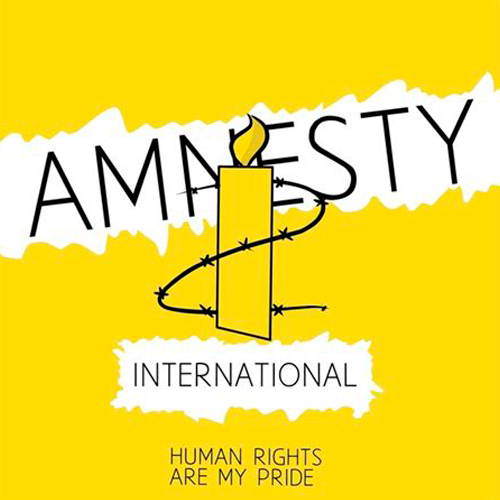
- A global human rights organization founded in 1961.
- Campaigns against abuses like torture, censorship, and discrimination.
- Conducts research and advocacy to protect freedom and justice.
- Independent, funded mainly by members and public donations.
CLEARNET LINK
Amnesty International: Global Human Rights Defense and Access Through Tor
Amnesty InternationalAmnesty International, founded in 1961, is a global human rights organization with more than 10 million supporters worldwide. It publishes reports on issues like political imprisonment, torture, censorship, and refugee rights, and its findings are widely used by journalists and international bodies. To ensure safe, uncensored access to this information, Amnesty launched a Tor mirror of its website, accessible only through the Tor Browser. This onion site helps protect readers’ privacy, supports activists in censored regions, and reinforces Amnesty’s mission to make the right to truth universal. More was founded in 1961 by British lawyer Peter Benenson, following his article “The Forgotten Prisoners”. Published in The Observer, it called for the protection of individuals imprisoned for their beliefs.
Since then, the organization has grown into a worldwide movement with more than 10 million supporters across 150+ countries. Amnesty operates independently of governments and corporations, relies heavily on individual donations, and is proud of its neutral yet determined stance on human rights.
Mission and Areas of Work
Amnesty International’s core mission is to uphold and advance the Universal Declaration of Human Rights. Its main areas of focus include:
- opposing the death penalty and torture,
- defending freedom of speech and the press,
- supporting political prisoners and human rights defenders,
- documenting war crimes and abuses in conflict zones,
- protecting the rights of women, minorities, and vulnerable groups,
- advocating for refugees and migrants.
The organization is widely recognized for its global campaigns, petitions, and solidarity actions that often lead to the release of unjustly imprisoned individuals.
Materials and Reports
Amnesty InternationalAmnesty International, founded in 1961, is a global human rights organization with more than 10 million supporters worldwide. It publishes reports on issues like political imprisonment, torture, censorship, and refugee rights, and its findings are widely used by journalists and international bodies. To ensure safe, uncensored access to this information, Amnesty launched a Tor mirror of its website, accessible only through the Tor Browser. This onion site helps protect readers’ privacy, supports activists in censored regions, and reinforces Amnesty’s mission to make the right to truth universal. More publishes a wide range of human rights materials, including:
- Annual reviews of the human rights situation in individual countries and regions,
- Special reports on crises such as wars, systemic abuses, or discrimination,
- Research on digital threats, surveillance, and internet restrictions,
- Case-based campaigns advocating for individuals facing unlawful persecution.
These reports are frequently cited by journalists, researchers, and international bodies such as the United Nations and regional courts.
Why Amnesty International Uses a Tor Mirror
1. Countering Censorship
In many countries, Amnesty’s work is restricted, and its websites are blocked. The onion mirror ensures free access to its reports and campaigns.
2. Protecting Readers’ Privacy
Activists and journalists often face risks if their online activity is monitored. Tor allows them to access Amnesty’s content anonymously and securely.
3. Ensuring Informants’ Safety
Amnesty gathers first-hand testimonies from human rights defenders and witnesses. The onion mirror is part of a broader infrastructure that helps safeguard these individuals and their communication with the organization.
4. A Symbolic Step
By launching a Tor mirror, Amnesty reinforces its commitment to openness and technological adaptability. It sends a clear message: the right to information must be defended with every available tool.
Significance for Journalism and Human Rights
The creation of Amnesty International’s onion mirror carries both practical and symbolic weight:
- Practical: activists, journalists, and ordinary citizens in censored regions can still access credible information.
- Symbolic: it highlights Amnesty’s mission to guarantee that human rights and free access to information remain universal.
Together with secure communication channels and global campaigns, the Tor mirror keeps Amnesty at the forefront of defending freedom in the digital era.
Conclusion
For more than sixty years, Amnesty InternationalAmnesty International, founded in 1961, is a global human rights organization with more than 10 million supporters worldwide. It publishes reports on issues like political imprisonment, torture, censorship, and refugee rights, and its findings are widely used by journalists and international bodies. To ensure safe, uncensored access to this information, Amnesty launched a Tor mirror of its website, accessible only through the Tor Browser. This onion site helps protect readers’ privacy, supports activists in censored regions, and reinforces Amnesty’s mission to make the right to truth universal. More has proven that the voice of millions can influence governments and change lives. From freeing prisoners of conscience to documenting war crimes, the organization remains one of the most vital forces in global human rights advocacy.
Its Tor mirror is a modern solution that ensures Amnesty’s reports stay accessible even where authorities try to suppress them. In today’s age of digital threats, it underscores one of Amnesty’s most powerful messages: the right to truth must be universal.


